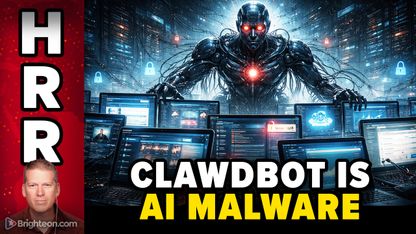
The Ukrainian government's digital app Diia carries individuals' records, including identity cards, passports, licenses, vaccination records, registrations, insurances, health reimbursements and social benefits. This app, which was supposed to be used for identification and social purposes, can now be used as a tool for war.
The word "Diia," in Ukrainian, means "action." However, it is also an acronym that translates to "the State and me."
In this time of conflict, the digital COVID vaccination certificates had been useful for fleeing refugees, as evidenced by a document originating from Greece's consulate in Odessa, which requested that members of Ukraine's Greek diaspora seeking to flee home have their vaccine credentials ready.
Deputy Prime Minister and Minister of Digital Transformation Mykhailo Fedorov first introduced the app in 2019 under the auspices of the "State in a Smartphone" project. It was officially launched in February 2020, where it was supposed to combine all public services in a single app, operating as a "digital state."
Digital passports and other official documents are now considered legally equivalent to their hard copy or paper versions, making Ukraine the first country to achieve this.
Diia also provides over 50 government services, with the eventual goal of making all interactions with the state available through the app. Currently, it is used by 14 million Ukrainians and is now considered a "national brand" in Ukraine.
The app is even credited as the first to include a number of online services for parents of newborns, with nine online services related to the birth of a child available 20 minutes after his or her birth.
This is a particularly impressive feat that aligned with the United Nations' Sustainable Development Goals. In particular, Goal 16.9 called for the provision of digital legal identity for all, including newborns, by 2030.
Most importantly, there is the "Diia City" virtual residency program for businesses virtually located in Ukraine and special services for internally displaced persons.
The Diia brand and project are credited mostly to Fedorov, who remains as Ukraine's digital minister amidst the war with Russia. Fedorov also previously established a digital marketing startup which led to his being hired by Volodymyr Zelenskyy in 2018 as the director of digital for the latter's presidential campaign.
In August 2019, after Zelenskyy was elected, his government established the Ministry for Digital Transformation, with Fedorov as minister. (Related: IMF: Russia-Ukraine war may FUNDAMENTALLY ALTER economic, political order worldwide.)
With the commencement of the latest military conflict with Russia, Ukraine's digital government services app has been converted into an instrument of war. It has become the tried-and-true method of distribution of cash subsidies made available via Diia by the Ukrainian government. It is also tax-free to citizens in areas most affected by the hostilities.
Payment restrictions previously put in place were also removed, and those who lost their jobs as a result of the conflict will be eligible for a one-off payment from the government.
International media floats Diia as war weapon
The international media had been focusing on Diia being a war weapon. Today, it has war-related features such as ways to donate money to the Ukrainian military, a chatbox for submitting images and videos of Russian troop movements in Ukraine, 24-hour streaming access to television stations and newscasts and even children's video channel. (Related: Russia-Ukraine crisis will put even more strain on the global food supply, driving up prices of wheat and corn around the world.)
Fedorov also called for a crew of developers, designers, marketers and security specialists to join a volunteer "IT Army," with 300,000 volunteers so far. They are tasked to share the IP addresses of Russian websites and companies and target them by DDoS attacks in an effort to knock them offline.
Furthermore, pro-Russian social media accounts that are spreading false information are reported via the efforts of the IT Army.
So far, some $63 million worth of donations have already come in for the Ukrainian military, with the digital ministry successfully engaging in a campaign to shame the world's largest tech companies into blocking services in Russia.
Fedorov also said the future is with tech, and it is why Ukraine will win the war.
"Russia's leadership still lives in the 20th century. They have failed to notice that governments must move toward becoming more and more like tech companies, rather than being rigid like a tank, like a war machine."
Follow WWIII.news for more updates on the Russia-Ukraine crisis.
Watch the video below to see how Ukrainian protesters confront Russian military.
This video is from the Chinese taking down EVIL CCP channel on Brighteon.com.
More related stories:
Reporter on the ground in Ukraine says "this could boil over into WWIII."
China slams US, NATO for provoking Russia to invade Ukraine.
Russia-Ukraine conflict not helping American companies with their supply chain problems.
Sources include:
Please contact us for more information.




















